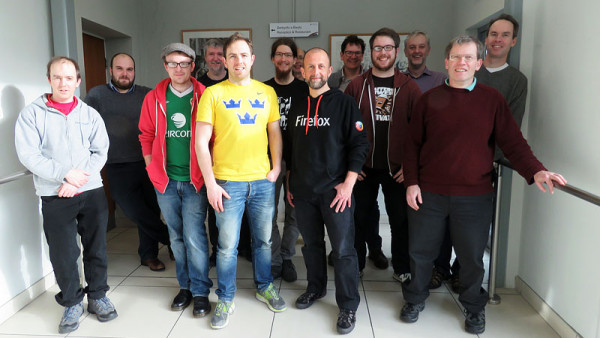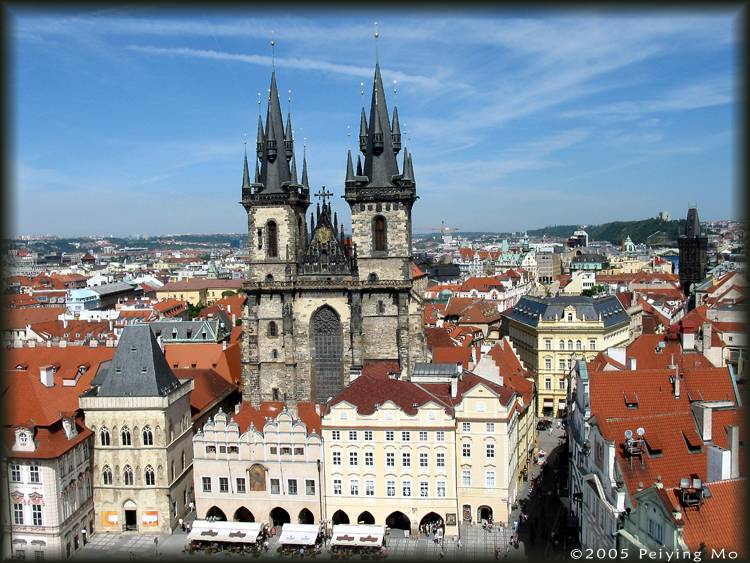At the beginning of March I was able to attend a localization meet-up/hackaton hosted in the lovely city of Bangor, Wales. Besides being the home of good part of our Welsh localization team, Bangor’s university hosts a very active Language Technologies Unit working on fields like speech recognition, machine translation, language corpora, etc.
On Friday the meet-up was preceded by a conference, Through Technological Means (Trwy Ddulliau Technoleg), that aims to bring together academics and practitioners who have an interest in the use and proliferation of language technologies in minority languages.
The target of this event was to gather localization teams from several languages spoken in the area, in order to take them up to speed on the recent changes in Mozilla, discuss their successes and struggles, compare experiences and catch up with some localization work.
The event spanned over two days, with about 20 participants covering Breton, Welsh, Irish, Scottish Gaelic, Manx and Scots. A perfect match of old-guard locales with over a decade of experience, and new locales just starting to localize Mozilla products.

Photo by our fearless Mozilla Rep, Stephen Murphy
We started of with Mozilla’s mission: “Build the Internet as a global resource, open and accessible to all”. How can a product be really global, or even accessible if it’s not localized?
The localization of Firefox into Celtic and minority languages is a representation of Mozilla’s commitment to accessibility. As an open source project, everyday people take the fate of their language’s digital existence into their own hands and make Firefox a browser that esteems all the languages of the world equally.
We then moved to Mark Surman’s call to radical participation, and how important is to create a virtuous cycle where participation helps our products and programs, but at the same time people get value from participating.
It’s interesting to see what kind of values localizers are getting (or would like to get) from their contribution:
- Being able to create connections with other people sharing the same passion for the language.
- Being able to have an impact.
- Being able to work directly with advanced technologies normally not accessible.
- Coming from a linguistic background, learning practical IT skills.
- Supporting local initiatives (e.g. localization academies).
It’s also important to remember that all these teams don’t simply work on localizing Mozilla products, but are often involved in localizing other Open Source projects like Libreoffice, KDE, etc.
Some interesting thoughts, and potentially actionable items coming from the meeting.
Download Page and Discoverability
The current download page for Firefox on mozilla.org relies exclusively on the current browser’s locale. If you’re using a browser set to en-US (American English), you’ll get a download link for the en-US version of Firefox.
It would be interesting to introduce geolocation in the picture: if you’re downloading Firefox from Bangor, the page should at least tell you that there are other builds you might be interested in for this area of the world. The same issue is relevant for other regions: think for example of a browser set to es-ES (Spanish from Spain) but used in Mexico, Argentina, or Chile, where we have specific localizations.
Printable and Localizable Marketing Material
We focus our entire communication on the “online”, but sometimes it would be useful to have material specifically created to be localized, printed locally and used in local events, or places like universities and libraries. And even keeping the focus on web content, we could do better in creating localizable campaigns. For example see this Libreoffice animation completely localized in Welsh.
Multi-language Support in Firefox
The current experience is far from good: you install an add-on (language pack) to add support for a specific language, but then you need another add-on to switch the UI language (or manually change preferences in about:config), and sometimes things break badly.
Multi-languages support is particularly important for minority languages: it’s not possible to install a browser in language X when there are multiple people with different language skills using a computer (think for example about universities and IT labs), sometimes that’s not even possible at home, where proficiency in a specific language might skip an entire generation.
Conclusions
Personally I found the event extremely fulfilling and useful. I hope it’s been an occasion for all participants to strengthen their bonds as Mozillians, and I’d like to thanks all people who spent energy and time in making this possible.
If you’re interested, some more links with further information and photos:









No comments yet
Post a comment